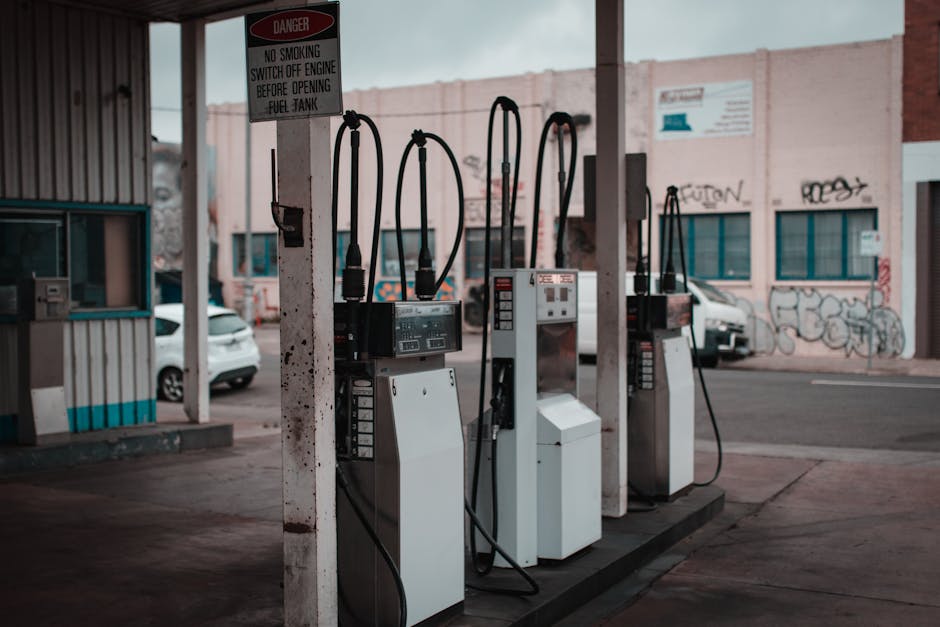 Swipe for more categories
Swipe for more categories 
What Vehicle Requires Premium Gas
What Vehicle Requires Premium Gas
If you’re a car owner, chances are you’ve had your fair share of visits to the gas station. One question that many vehicle owners often ponder is, “Does my vehicle require premium gas?” In today’s world with a variety of options at the pump, it’s crucial to know which fuel is best suited for your vehicle’s engine performance and longevity.
In this blog post, we’ll explore the importance of knowing whether or not your car needs premium gas, the advantages of using premium fuel, and how to identify vehicles that require it. So, buckle up and get ready to dive into the world of premium gasoline in order to make an informed decision the next time you’re at the pump.
Characteristics of Premium Gas: Performance, Efficiency, and Protection
Premium gas is designed to deliver optimal performance, efficiency, and protection for specific vehicle types. With a higher octane rating than regular gasoline, it is less likely to cause engine knocking, improving overall function and extending the life of your engine.
The improved performance is a significant factor for vehicles with high-compression engines, like those found in sports cars and luxury models. These engines demand more from the fuel, and premium gasoline enables a smoother and more efficient run, providing better acceleration and power on the road.
Moreover, fuel efficiency benefits from the heightened burning capabilities of premium gas, which results in cleaner emissions and a reduced carbon footprint. This, coupled with added protective properties that reduce wear and tear on intricate engine parts, ensures your vehicle retains optimal performance and sustains a longer lifespan.
Luxury and Sports Cars: High-Performance Engines Demand Higher Octane Fuel

Luxury and sports cars are often equipped with high-performance engines, designed to deliver impressive horsepower and acceleration. These powerful engines have a higher compression ratio, meaning they compress air and fuel more tightly before ignition. As a result, they require a higher octane fuel to resist pre-ignition or “knocking,” which can cause significant engine damage over time.
This is where premium gas comes in. With a higher octane rating than regular gasoline, it’s specifically formulated to withstand the demanding conditions within high-performance engines. By using premium gas, you’re ensuring that your engine ignited properly and runs smoothly, delivering the power and efficiency you expect from a luxury or sports car.
In conclusion, if you own a high-performance vehicle such as a luxury sedan, sports coupe, or even a high-end SUV, always opt for premium gas. Your vehicle manufacturer will likely recommend it, as it’s crucial for maintaining the performance and longevity of your powerful engine.
Turbocharged and Supercharged Vehicles: Preventing Engine Knock and Improving Power

Turbocharged and supercharged vehicles have become increasingly popular, thanks to their ability to boost engine power and improve fuel efficiency. However, these high-performance engines require additional care, including using premium gas to ensure optimal performance and longevity.
Premium gas is crucial in preventing engine knock, which can severely damage a turbocharged or supercharged engine. Engine knock occurs when fuel and air inside the engine cylinder combust too early, resulting in a metallic knocking sound. Using premium gas, with its higher octane rating, helps the engine resist knocking and pre-ignition.
In addition to preventing engine knock, premium gas improves the power output of these high-performance engines by delivering cleaner combustion and better fuel burn. This provides more horsepower, smoother acceleration, and a more responsive ride for drivers.
Investing in premium gas for your turbocharged or supercharged vehicle not only protects your engine but also significantly enhances your driving experience. Choose premium fuel for optimum performance and peace of mind.
High-Compression Engines: Reducing Pre-Ignition and Boosting Performance

High-compression engines are designed to deliver increased power and optimize performance, especially in luxury and high-end sports cars. These engines operate under high pressure and require a fuel that can withstand such conditions – this is where premium gas comes into play.
By using premium fuel in a high-compression engine, drivers can reduce the likelihood of pre-ignition, a phenomenon where the fuel ignites too early before the spark plug fires. Pre-ignition can lead to engine knocking, poor performance, and even damage over time.
Moreover, premium gasoline’s higher octane rating allows it to withstand high compression without igniting prematurely, ensuring a smooth and efficient power delivery. This means an enhanced driving experience and potentially improved fuel economy, making premium gas an essential component for vehicles with high-compression engines.
Specialized Engine Configurations: Direct Injection, Variable Valve Timing, and More

In today’s automotive landscape, specialized engine configurations have become increasingly common to maximize performance, fuel economy, and emission control. Let’s take a closer look at some of these advanced technologies and how they correlate to requiring premium gasoline.
Direct Injection provides precise fuel delivery directly into the combustion chamber, improving combustion efficiency and reducing emissions. Vehicles equipped with this cutting-edge technology often require premium fuel due to the higher compression ratios involved.
Variable Valve Timing (VVT) is another noteworthy engine enhancement that varies valve opening and closing timing for optimized power and efficiency. Premium gas may be necessary in some VVT-equipped engines, especially in high-performance or turbocharged variants.
Other noteworthy tech innovations include turbochargers and superchargers, which induce forced air into the engine and consequently demand higher octane fuel.
It’s crucial to consult your owner’s manual and adhere to your manufacturer’s recommended fuel type to protect your investment and ensure the longevity and performance of your vehicle.
Benefits of Premium Gas: Cleaner Burn, Fewer Emissions, and Increased Longevity

Premium gas plays an essential role in ensuring your vehicle performs at its optimal level. One significant benefit of using premium gas is the cleaner burn it provides. The higher octane levels in premium gas lead to more efficient combustion, which ultimately results in less waste in your engine.
In addition to a cleaner burn, using premium gas also contributes to fewer emissions. Lower-emission vehicles have a smaller impact on the environment and can also lead to potential cost savings, as some states offer incentives for eco-friendly cars.
Lastly, increased engine longevity is another advantage of utilizing premium gas. The cleaner combustion process reduces the buildup of harmful deposits and can extend the life of various engine components. This, in turn, translates into the potential for fewer repairs and a longer-lasting vehicle.
Overall, incorporating premium gas into your vehicle maintenance routine may result in a cleaner engine, reduced emissions, and an increased lifespan for your car. Make sure to check your owner’s manual to determine if premium gas is required for your specific vehicle.
How to Identify if Your Vehicle Requires Premium Gas: Deciphering Owner’s Manual Guidelines

If you’re unsure whether your vehicle requires premium gas, the first place to check is your owner’s manual. Every car manufacturer provides specific guidelines on the recommended fuel types for their vehicles. The manual will explicitly state if your vehicle needs premium gas, or if regular fuel will do the trick.
Don’t have a copy of your owner’s manual? No need to worry. Most car manufacturers provide digital versions of their owner’s manuals on their websites. Alternatively, a quick search online with your vehicle’s make, model, and year should provide you with the correct fuel octane requirement.
Remember, regularly using the wrong type of gas may lead to decreased engine performance or potential damage. It’s vital to adhere to the fuel recommendations in your owner’s manual to maintain optimal performance and longevity for your vehicle.
The Cost-Benefit Analysis: Weighing the Additional Expense Against Performance Gains

When deciding if premium gas is worth the extra cost for your vehicle, it’s essential to conduct a cost-benefit analysis. Start by considering the performance gains associated with higher octane fuel, which can lead to improved engine efficiency and power. Additionally, premium gasoline often contains additives that can help reduce engine wear and keep the fuel system clean.
Next, weigh these benefits against the additional expense of filling up with premium gas. Usually, there is a price difference of around 20 to 30 cents per gallon between regular and premium gasoline. Depending on your vehicle’s fuel efficiency and how often you drive, this can represent a sizable amount over time.
Consider your vehicle’s specific requirements and your driving habits to make an informed decision about whether or not the performance gains justify the added expense. Remember, prioritizing vehicle maintenance goes a long way in maintaining optimal performance and longevity.


